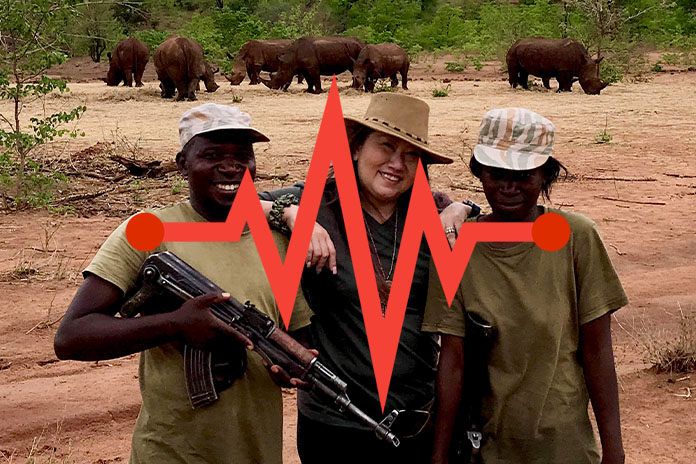
THE ITCH to travel must be driving some people crazy as they relive past glories by avidly posting pictures and videos on social media, and wondering when they’ll be able to escape to far-away — or nearby — lands.
But first you’ve got to figure out when you’ll be allowed out of the house for more than grocery shopping or to school or that medical appointment. And then add a few (or many) more months to that date.
This region’s desire to travel has skyrocketed in recent decades, with the arrival of budget carriers, budget hotels and budget travellers. Any excuse to drop things for a weekend jaunt; jetting off in an aeroplane packed tighter than sardines in a can as the tube hurtles across the heavens, landing a few hours later in a totally different environment of sounds, smells and experiences.
Alas, that’s all in the recent past, and not likely to happen in the near future. At least not with the free abandon it used to be done with.
From 2010 to 2019, travel and tourism doubled in its contribution to the GDP of the Southeast Asia region, jumping from US$197 bn to US$393 bn. That number is going to fall off the cliff this year. Joined by many related businesses.
As one of the major industries to be hammered into immobility by the Coronavirus, travel and tourism has joined the hospitality and food and beverage industries, all suddenly facing a black hole of uncertainty.
ALSO READ: Going On The Offensive in The Face Of COVID-19
These are strange times for the travel industry. For folks on the go, they are now vicariously salivating over travel destinations from their home computers.

Planning Ahead
A2A Safaris staff are locked away in Singapore, Hong Kong, Philippines, Australia and South Africa, preparing for the time they can venture out into the great wide open.
“A2A Safaris was conceptualised just after 9/11 and we have managed to navigate and to thrive post global events such as Sars, the global financial crisis, Ebola, Zika and many other bumps along our journey,” says Monica Alsagoff, the brand’s head of marketing in Asia and the Singapore country head.
ALSO READ: 8 Tips To Run Your Business Remotely
While things may have slowed down in real time, Monica and her team are busy anticipating for travel needs in 2021.
“It’s almost business as usual.” Just without the travel.
A2A Safaris is a niche business catering to a sophisticated audience that likely doesn’t take too kindly to hiccups in their travel itineraries. Working with longstanding partners helps to ensure that the promises made are met and satisfaction levels are met.
“Our partners have been around as long as we have been in business and we have weathered the various crises together. Maybe some of the smaller businesses may have their strategic options limited and may have to consolidate in order to stay afloat and get more creative in new ways to compete.”

Waiting It Out
Since the pandemic struck, Andrew Chan, founder of ACI HR Solutions, has been cleaning up the back-of-house operations. A survivor of the financial crisis of 2007/08, he has engineered his hospitality and travel recruitment business to “run on a lower cost model”.
He reckoned another downturn was on the cards. “The normal cycle nowadays seems to be every 10 years.”
But he does admit that COVID-19 is “a different animal” given its magnitude, rivalling the Great Depression.
Eventually, when business levels rise and he is able to mobilise his trainers, he will have to assess the extent of the damage. “It’s going to depend on how long the situation stretches on for, but I do think there will be many business casualties after COVID-19.”
ALSO READ: A Dark Cloud Looms Over Commercial Properties
Where Will They Go?
Mass market agency Dynasty Travel has been busy working the social media channels to keep the brand top of mind of its customer base.
In looking ahead, Alicia Seah, Dynasty Travel‘s director of public relations and communications, says “most of us are eager to travel once the pandemic is over, but in a safe and secure manner”.
She believes her clients will travel regionally once the bans are lifted in the Asia Pacific region; countries like Thailand, Indonesia, China, South Korea, Japan, Australia and New Zealand. “They will opt to travel to places close to nature, and stay in resorts and hotels in the suburbs rather than the city.”
Customers will be wiser from the experience and “will book with caution, opting for more comprehensive travel insurance coverage to cover tour cancellation, and allowing them to postpone or cancel a trip when there are last-minute emergencies such as travel bans and unforeseen circumstances.”
With many tourism related businesses struggling to get back into the groove, Dynasty will have to negotiate harder with their partners for the best deals, not just in terms of price, but benefits as well. “Customers will also consider if suppliers such as airlines, hotels or cruise liners will ease the terms and conditions such as refund policies for any changes in the tour itineraries.”
From this point on, Alicia believes travellers will pack differently. “Wet wipes, hand sanitisers and masks will be essential items to bring whenever you travel in the future.”
The face of travel may change, as it did post 9/11 when a variety of restrictions were introduced, and a new layer of prohibitions may be slapped on, but that’s not going to dampen the spirit of today’s adventurers who will see this as a bit more adventure to be had on the road.
If you have a point of view on COVID-19, or think someone you know could present a thought-provoking perspective on the subject, please email editor@storm-asia.com with your details and a short summary.



















